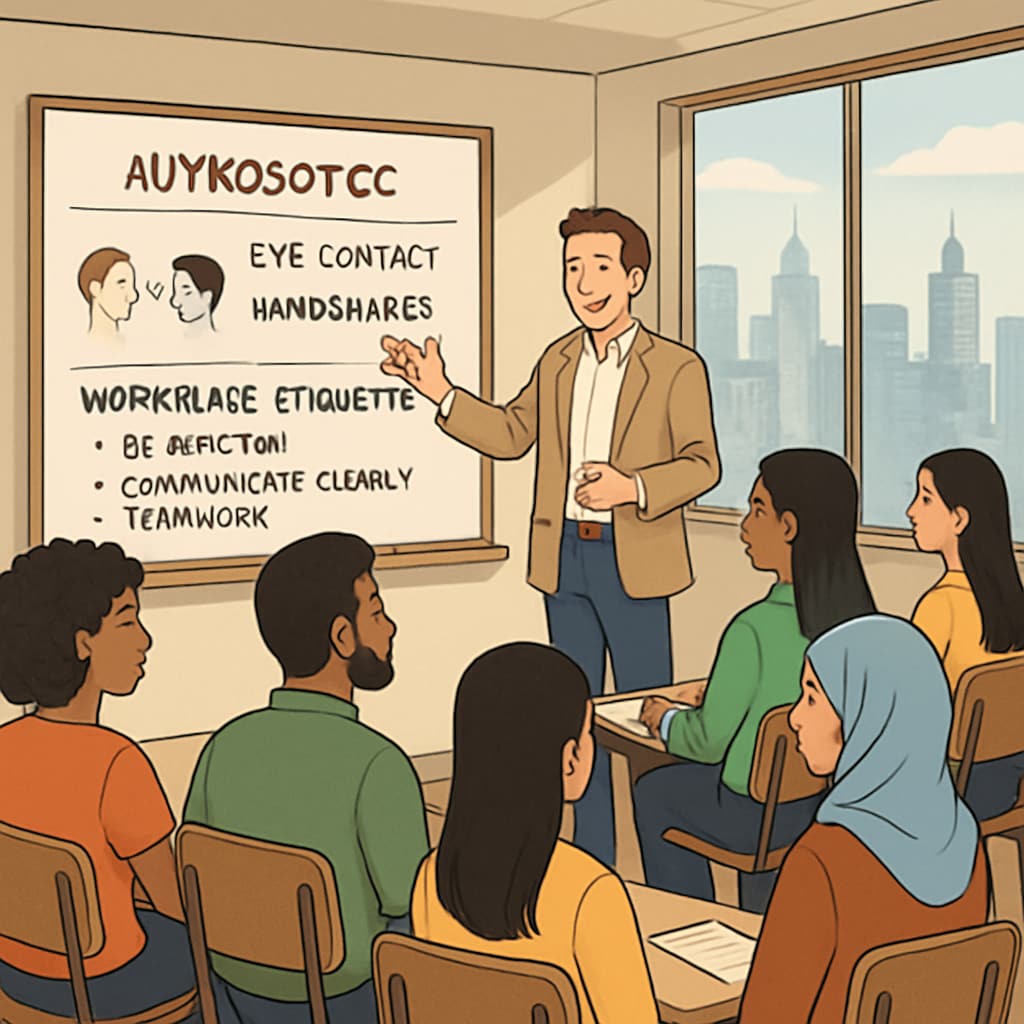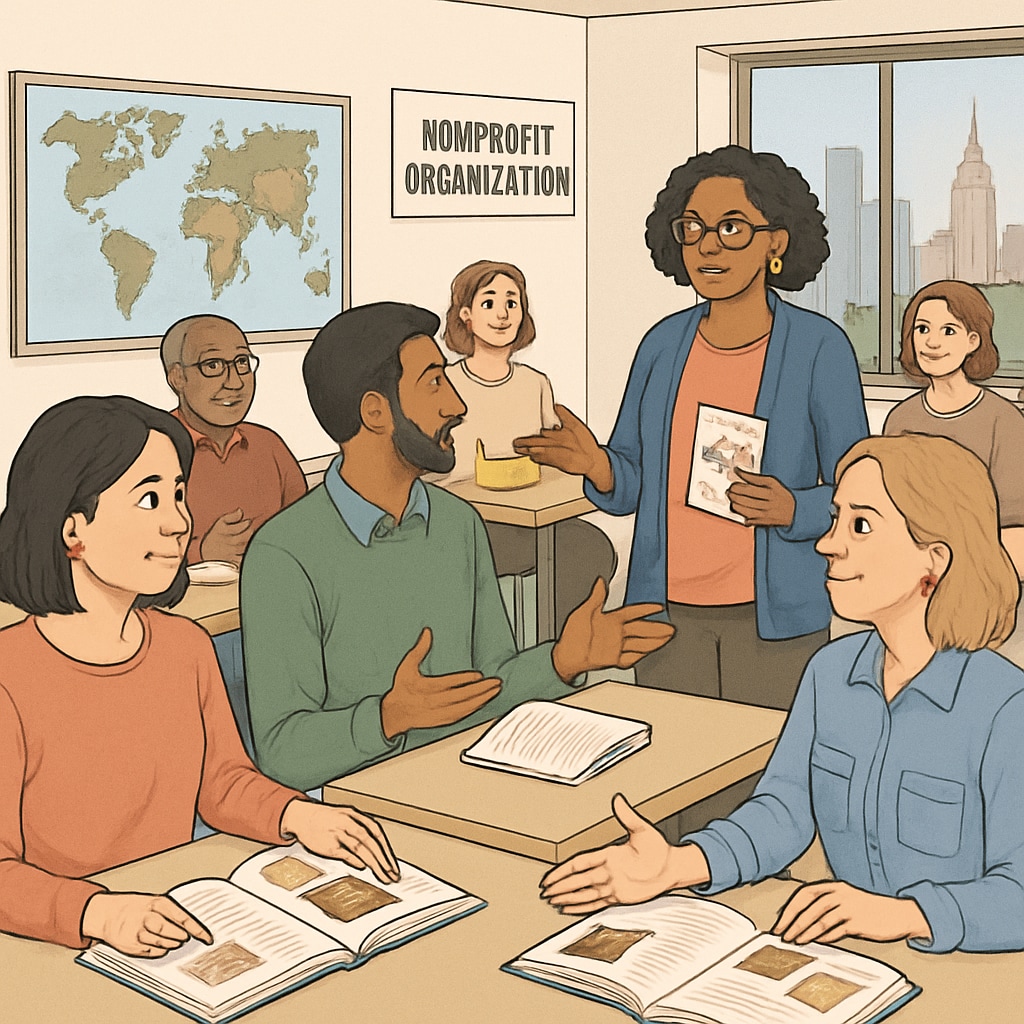International students entering the U.S. education system often encounter challenges tied to cultural adaptation, adult education, and foundational knowledge. Navigating a new culture while pursuing academic or professional aspirations can be overwhelming. Fortunately, supplementary cultural education courses can serve as a vital bridge, empowering students to integrate seamlessly into American society. Particularly in New York, a city renowned for its diversity and robust educational infrastructure, international students can access a wealth of resources to enhance their cultural understanding and career readiness.
Understanding the Need for Cultural Adaptation
Moving to a new country comes with its unique set of cultural hurdles. For international students, mastering the nuances of American academic standards, workplace expectations, and social interactions is not always intuitive. Lack of awareness about cultural norms can lead to misunderstandings, social isolation, or even professional setbacks. Therefore, cultural adaptation programs aim to address these gaps by teaching essential skills such as communication etiquette, historical context, and workplace behavior.
For example, many adult education centers in New York offer workshops focused on bridging cultural gaps. These programs not only emphasize language proficiency but also help students understand unwritten societal rules, such as how to participate in group discussions or network effectively at professional events.

New York’s Top Resources for Adult Education and Foundational Knowledge
New York offers a variety of programs tailored to international students seeking cultural adaptation and foundational knowledge. Here are some of the most accessible and effective resources:
- The New York Public Library: The NYPL provides free workshops on English as a Second Language (ESL), computer literacy, and cultural orientation. Students can access resources to improve both their language skills and understanding of American society. Learn more on their official website.
- Community Colleges: Institutions such as LaGuardia Community College offer adult education courses, including career preparation and intercultural communication. These programs are often affordable and designed to fit into busy schedules.
- Nonprofit Organizations: Groups like the International Center of New York focus on assisting newcomers with cultural adaptation. Their tailored workshops include topics like U.S. history, social customs, and workplace integration.
Each of these programs provides an inclusive environment where international students can build confidence and develop the tools they need to thrive in their new surroundings.

Benefits of Participating in Cultural Education Programs
Engaging in cultural education programs provides a range of benefits for international students. These advantages include:
- Improved Communication: Learn how to communicate effectively in both social and professional settings.
- Enhanced Career Prospects: Gain insights into workplace culture, making it easier to adapt and succeed in American companies.
- Increased Confidence: Build self-assurance in navigating unfamiliar situations and forming connections.
- Stronger Community Ties: Connect with peers facing similar challenges, fostering a sense of belonging.
For those balancing work, education, and cultural adjustment, these programs offer a structured way to gain practical skills while feeling supported in their journey.
Tips for Navigating Cultural Adjustment in New York
While formal education programs are invaluable, international students can also take additional steps to ease their cultural transition:
- Attend Local Events: Participate in community activities or cultural festivals to immerse yourself in American traditions.
- Practice English Regularly: Engage in casual conversations with locals or join language exchange groups.
- Seek Mentorship: Connect with mentors who have experience navigating cultural transitions.
- Stay Informed: Read about U.S. history and current affairs to better understand the cultural context.
By combining formal education with informal learning opportunities, international students can create a well-rounded approach to cultural adaptation.
Conclusion: A Bridge to Success
For international students, adapting to American culture involves more than just academic achievement—it requires a deep understanding of societal norms and professional expectations. By leveraging New York’s rich array of adult education programs focused on cultural adaptation and foundational knowledge, students can bridge the gap between their home culture and the U.S. environment. These efforts not only enhance personal growth but also pave the way for long-term success in their academic and professional endeavors.
Whether through community college courses, nonprofit workshops, or self-guided exploration of New York City, opportunities abound for students willing to invest in their cultural acclimatization. Ultimately, embracing these resources empowers international students to thrive in a multicultural society.


